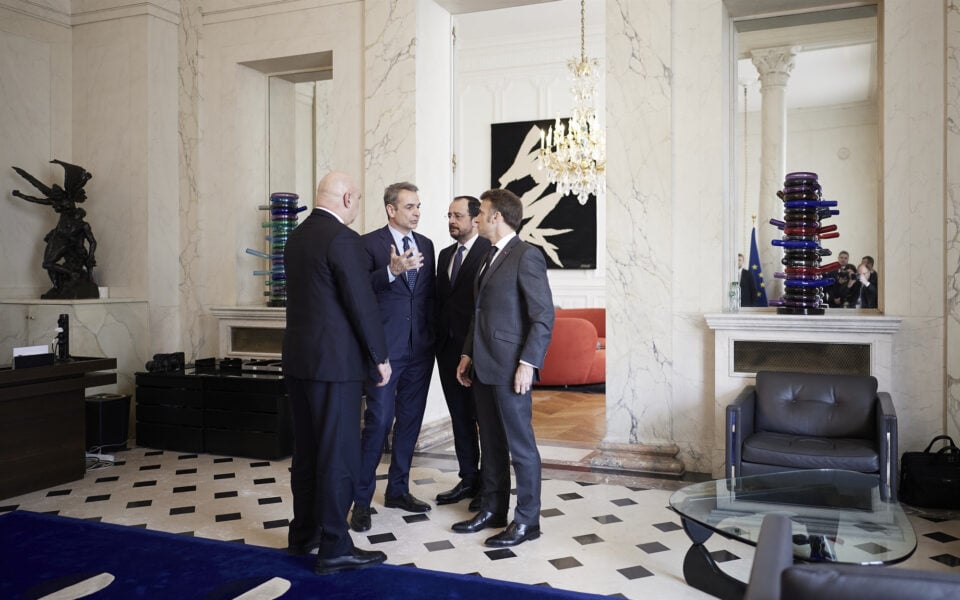
[Dimitris Papamitsos/Prime Minister’s Office]
Greece’s and Cyprus’ multifaceted engagement in the volatile region of the East Mediterranean continued last week, as the fragmented West assesses and tries to deal with developments in the area which could have global repercussions.
Both Europe, with deep economic, social and historical ties with the Middle East, and the US, which is turning its focus toward the Far East, need stable and reliable partners in the area.
Greece and Cyprus, not only promote themselves as pillars of stability, but are widely recognized as such.
They are both strategic allies of Israel; the Greek prime minister was in Jerusalem on Sunday, while the Israeli president visited Nicosia in January.
In Washington, leaders of the Greek-American community work closely with Jewish-American organizations.
A project of major geopolitical significance taking shape is the India-Middle East-Europe Economic Corridor (IMEC), which enhances the strategic importance of Greece, Cyprus and Israel.
At the same time, traditional ties with the Arab world are flourishing; from the trilateral cooperation scheme of Greece, Cyprus and Egypt, to the deepening multifaceted relationships with Saudi Arabia and the United Arab Emirates.
Just last Friday the leaders of Greece and Cyprus held a four-party meeting at the Elysee Palace in Paris with the presidents of France and Lebanon, focusing on security, migration, interconnectivity and energy developments in the East Mediterranean and the Middle East. They also spoke via video conference with Syrian interim president Ahmed al-Sharaa.
It was a natural gathering as all four countries have common priorities and interests in the wider region, foremost among them establishing and empowering a stable Lebanon in peace with its neighbors, while minimizing any outside influences not only in Lebanon, but Syria too.